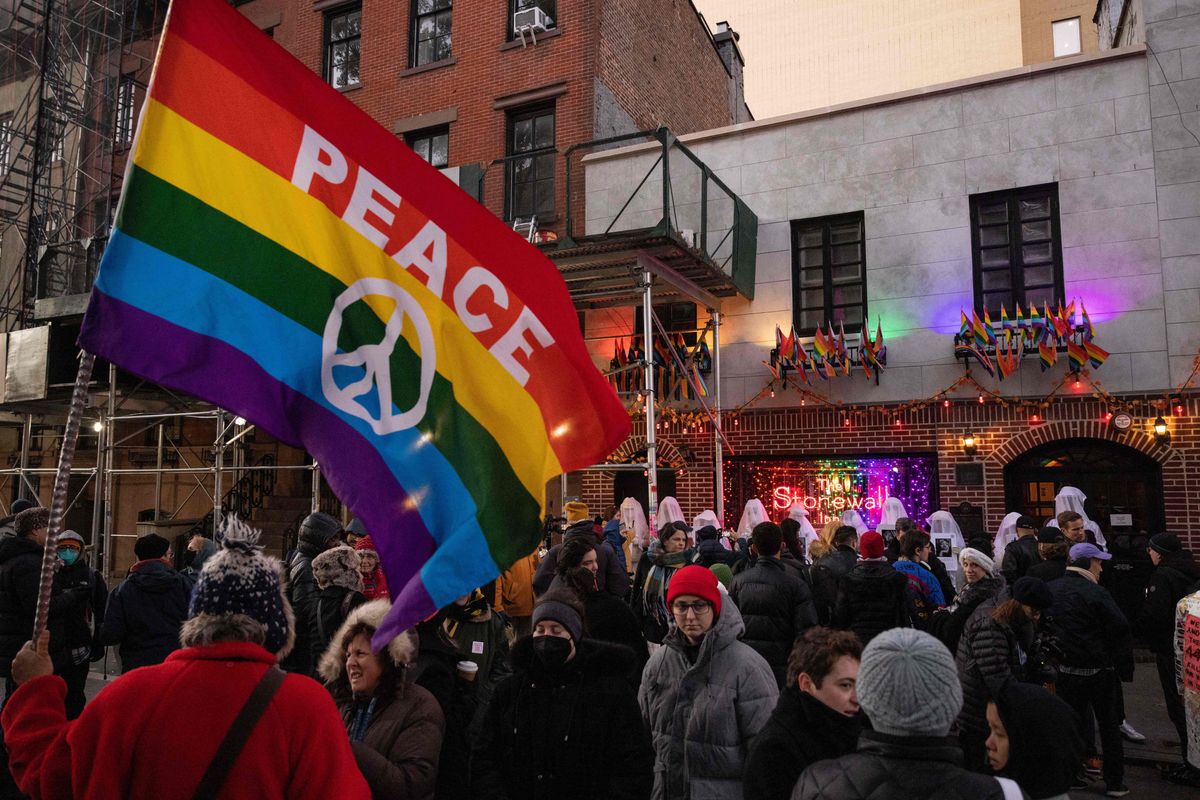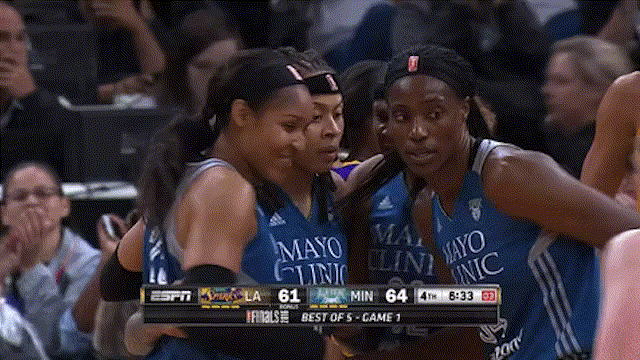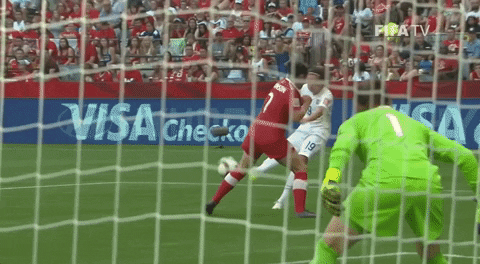Celebrating the LGBTQIA+ sports community

🌈 The history
Pride Month is celebrated in June to commemorate the June 1969 Stonewall Uprising, a pivotal turning point in the gay rights movement. Police raids on gay bars were common at the time, but the crowd at NYC’s Stonewall Inn on June 28th, 1969 fought back, sparking a wave of protests and a groundswell of momentum in the fight for equal rights.
- Many (but not all) discriminatory laws were struck down in the decades that followed, with increased gay representation in media and society at large.
However, the sports world has been historically unwelcoming to the LGBTQIA+ community, as homophobia and transphobia (more on that later) continue to be prevalent problems on and off the field of play.
- However, there has been significant progress over the years that’s worthy of celebration…
👊 Brave barrier-breakers
From BJK to Martina Navratilova, plenty of women’s tennis legends have influenced the fight for LGBTQIA+ rights. A lesser-known trailblazer on the court? Renée Richards, a trans athlete who won a lawsuit against the U.S. Tennis Association after they barred her from competing in the women’s draw at the 1976 U.S. Open.
- The New York Supreme Court ultimately ruled in Richards’ favor, and she advanced all the way to the doubles finals at the 1977 event. Aces all around.
Over on the basketballcourt, the WNBA leads the way in LGBTQIA+ inclusion, despite some infuriating decisions in the league’s early years. In 2002, the NY Liberty’s Sue Wicks was the first WNBA player to publicly come out, paving the way for a league that’s now loud and proud.
- Another trailblazer in the W? Phoenix Mercury star Brittney Griner, who casually mentioned her sexuality after being drafted No. 1 overall in 2013, inspiring countless other players to come out across the league.
Moving to the soccer pitch, former USWNT stars Ashlyn Harris and Ali Krieger have become one of the most iconic power couples in sports, but they encountered numerous obstacles along the way. Initially drafted to the Washington Spirit, Harris and Krieger had to compete for the only NWSL club that didn’t host a Pride Night.
- Harris was later selected by Orlando in the 2015 expansion draft, but Krieger stayed in Washington for a year and continued advocating behind the scenes for the Spirit to join the rest of the league in publicly celebrating the LGBTQIA+ community.
Given those marginalizing experiences, it’s no wonder the couple was hesitant about going public with their relationship. But they ultimately decided they were “willing to risk it all to really just authentically be ourselves,” Harris said after their March 2019 spread in People Magazine.
- One legendary wedding and two kiddos later, the couple continues to inspire on and off the field.
😮💨 A long way to go
While women’s leagues have largely evolved into safe and welcoming spaces, the same can’t be said for men’s leagues.
The MLB’s LA Dodgers were recently in hot water for their upcoming Pride Night after disinviting an LGBTQIA+ advocacy group called the Sisters of Perpetual Indulgence. Fortunately, the Dodgers promptly reinvited the group after being hit with warranted backlash.
- Sadly, not all Dodgers’ players were happy with the reinviation. Legendary Dodgers pitcher Clayton Kershaw said he did not agree with the team’s decision to include the Sisters of Perpetual Indulgence in the celebrations. Ugh.
- Another curveball? North of the border in Toronto, Blue Jays pitcher Anthony Bass shared a video on social media last week endorsing boycotts of Target and Bud Light due to the companies’ Pride campaigns. He has since issued an “apology.”
On the ice, the NHL made headlines for all the wrong reasons this season when teams and players fumbled Pride Night celebrations. The NY Rangers opted out of wearing rainbow warmup jerseys during their own Pride Night, despite wearing the jerseys in prior years, and saying they would this year too.
- Philadelphia Flyers defenseman Ivan Provorov, meanwhile, did not participate in his team’s Pride Night festivities, citing religious beliefs, yet he was still allowed to play the game. Make it make sense.
🏳️⚧️ Trans rights are human rights
This year’s Pride Month celebration comes amidst a horrifying ongoing movement in the U.S. to restrict transgender youth’s access to sports. Twenty-one states currently ban transgender athletes from competing in sports consistent with their gender identity, including three states that joined the list this year.
- California is not on this list, but the movement reached the Golden State after two high school girls pulled out of the state’s track and field championships last month due to anti-trans backlash. Let the kids play.
The targeted discrimination extends across all levels and ages of sports. For example, the state of Alabama recently signed legislation that expands their existing ban to prohibit trans women from playing on collegiate women’s sports teams.
Trying (and failing) to appease both sides of the aisle, the U.S. Department of Education proposed a rule change in April that would allow schools to block some transgender athletes from competing in events that align with their gender identity when questions of physicality and fairness arise.
- At the same time, the department said that blanket bans on trans athletes would be a direct violation of Title IX.
- Since Title IX does not directly address gender identity, the Biden administration proposed an updated definition of “sex” to protect transgender athletes under the act.
❤️ How to support
We can all play a part in supporting LGBTQIA+ rights in sports, especially by loading up with knowledge. The American Civil Liberties Union (ACLU) has a fact sheet on transgender athletes in sports that busts the myth that trans athletes inherently have a competitive advantage.
- Looking for dedicated content about LGBTQIA+ athletes? Look no further than Outsports. In addition to providing a regular spotlight for athletes in the community, the outlet also sheds light on how the sports world is — and isn’t — becoming a more inclusive place.
Another organization putting in the hard work? Athlete Ally. The nonprofit offers educational materials, including research on the most inclusive NCAA athletic departments. You can join Athlete Ally’s mission by donating or visiting the org’s shop.
P.S. We have something coming down the pipe this week, too. Keep your eyes peeled.

